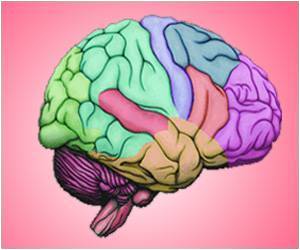
Participants were instructed to try to make optimal choices in order to gather coins of a certain color, which were redeemable for money.
During a pre-training period, the subjects familiarized themselves with the game-moving through a series of on-screen rooms, each of which held different numbers of red, yellow, or blue coins.
During the actual game, the participants were told which coins would be redeemable each round and given a choice to navigate right or left at two stages, knowing that they would collect only the coins in their final room. Sometimes all of the coins were redeemable, making the task more habitual than goal-directed.
By altering the probability of getting from one room to another, the researchers were able to further test the extent of participants' habitual and goal-directed behavior while monitoring corresponding changes in their brain activity.
With the results from those tests in hand, the researchers were able to compare the fMRI data and choices made by the subjects against several computational models they constructed to account for behavior.
Advertisement
In this model, the arbitrator ensures that the system making the most reliable predictions at any moment exerts the greatest degree of control over behavior.
Advertisement
Source-ANI











